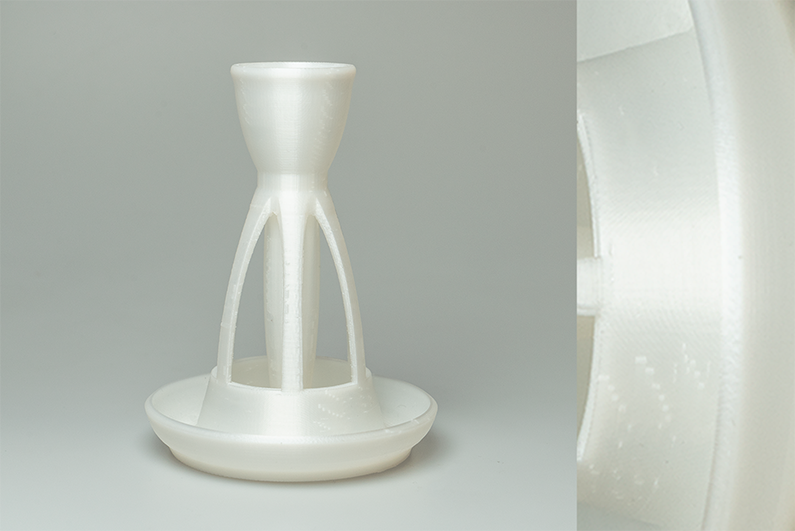Filament | Master Guide
A comprehensive selection of filaments from both OEM and 3rd parties with easily distinguishable mechanical, chemical and printing characteristics to ensure you can find the right filament for you, ranging from $19.99 - $159.99.
Shop3D.ca curates our filament by rigorous in-house testing and regularly checks batches of filament to ensure that they are up to spec. We choose each filament brand and type according to its performance, consistency and price/value ratio.
Relevant information at a glance: Select a filament from the list below to see material highlights, a sample print and the brands we carry.
Still unsure about which filament is best for you or have a special request or application? Reach out to our applications team for recommendations.
Essentials
Aesthetics
Economy
surface finish
colors
Bulk
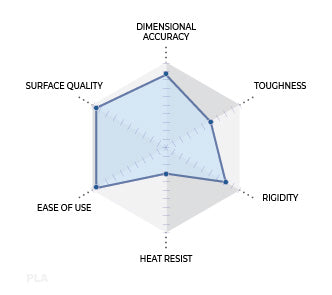
- Pros
- Very easy to print
- Good surface finish
- Low warping/ shrinking/deformation
- Compatible with PVA and Breakaway support
- Good dimensional accuracy
- Cons
- Low temperature resistance
- Low impact resistance
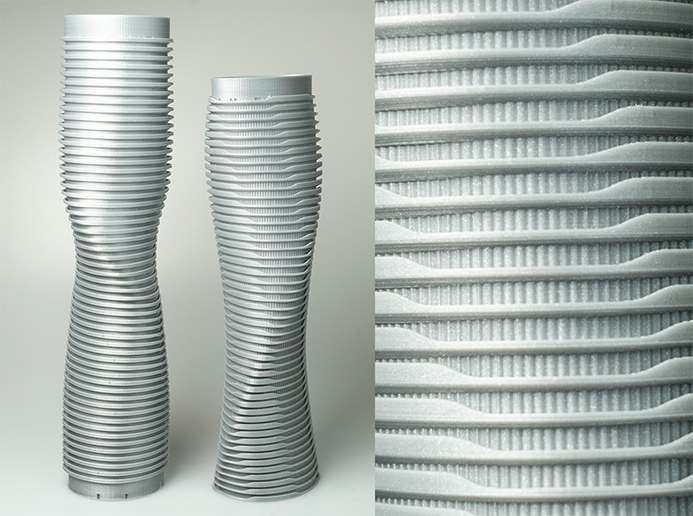
Essentials
Prototype
Engineering
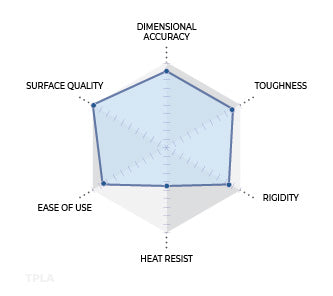
- Pros
- Excellent surface finish
- Easy to print
- Robust material
- Good Accuracy
- Very Wide operational Range
- Cons
- Low temperature resistance
- Low impact resistance
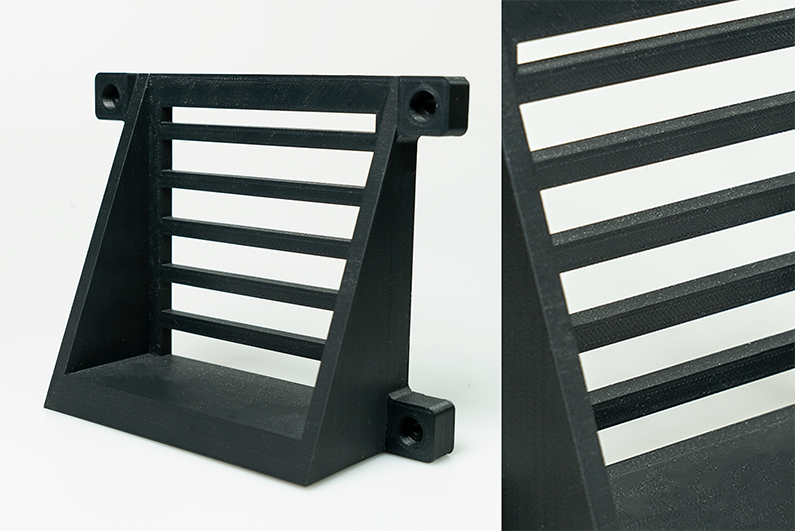
Essentials
Prototype
Engineering
Fast
Bulk
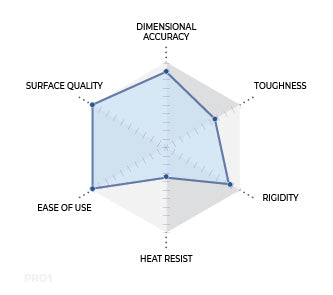
- Pros
- Excellent surface finish
- Easy to print
- Robust material
- Good Accuracy
- Very Wide operational Range
- Cons
- Low temperature resistance
- Low impact resistance
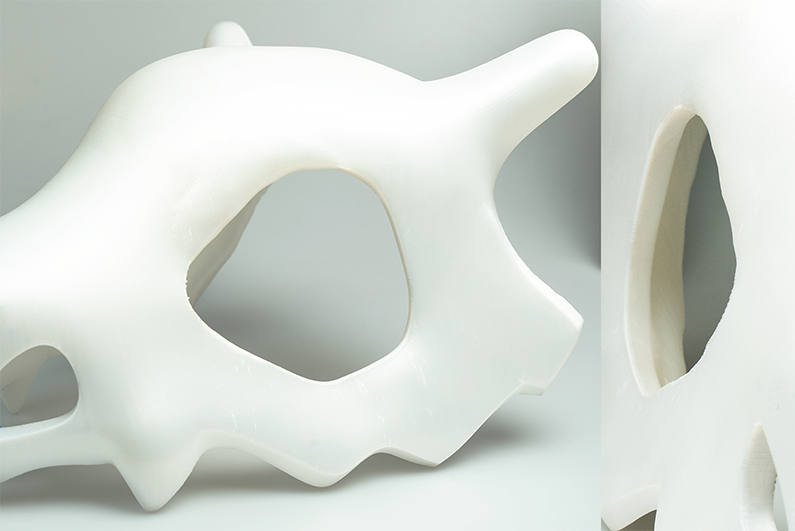
Essentials
Economy
General
Everyday
Colors
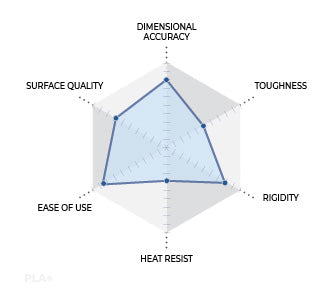
- Pros
- Easy to print
- Good surface finish
- Low warping/ shrinking/deformation
- Compatible with both PVA and Breakaway support
- Cons
- Low temperature resistance
- Low UV resistance
- Low impact resistance
- Low chemical resistance
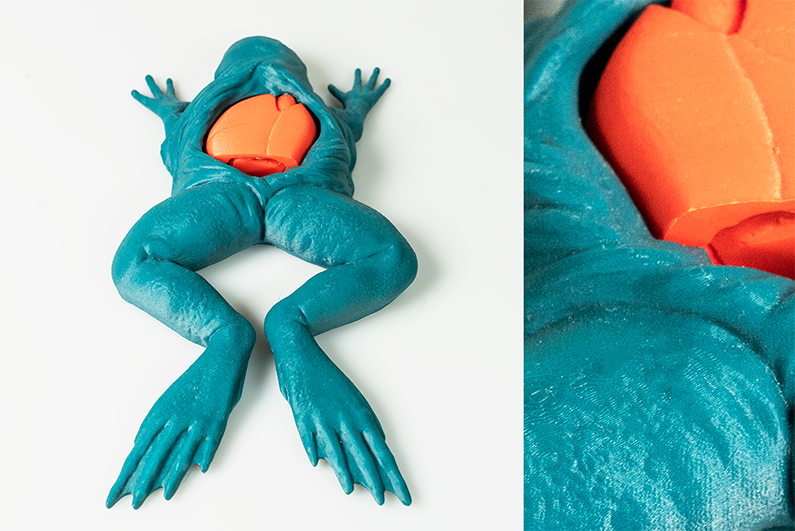
Aesthetic
Display
Unique
Specials

- Pros
- Unique visual properties
- Easy to print
- Superb surface quality
- Cons
- Low impact resistance
- Slower printing speed for better quality
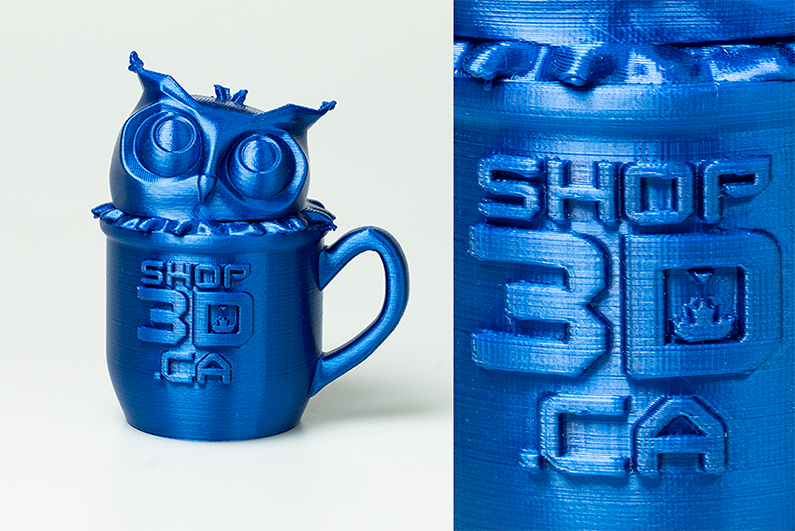
Aesthetic
Special
Color Change
Unique
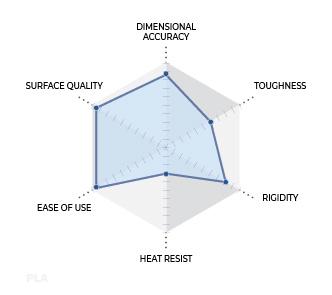
- Pros
- Very easy to print
- Good surface finish
- Low warping/ shrinking/deformation
- Compatible with both PVA and Breakaway support
- Cons
- Low temperature resistance
- Low impact resistance
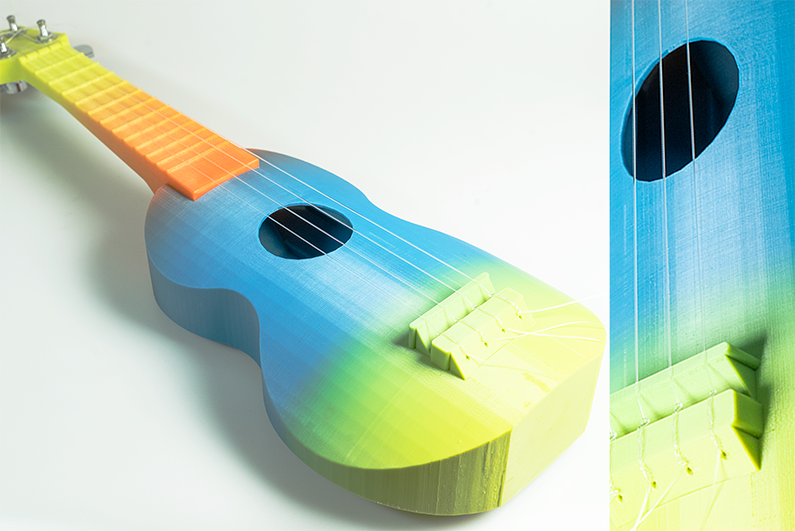
Support material
Soluable (water)
Essentials
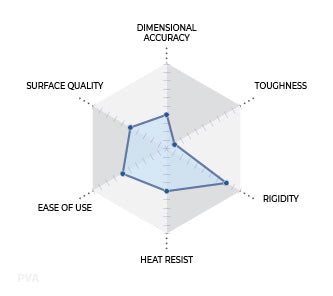
- Pros
- Don't have to sacrifice design for printability
- Hands free support removal
- excellent dimensional accuracy
- Easy to print
- Cons
- Pro-long exposure to air makes the filament brittle
- Not compatible with some engineering materials
- Requires regular maintenance of the nozzle
- Requires Dual Extrusion Printer
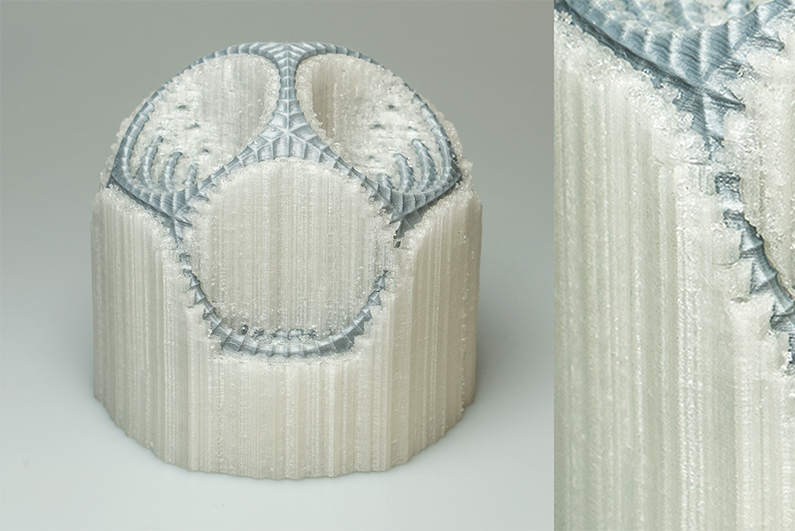
Support material
Semi-Flex
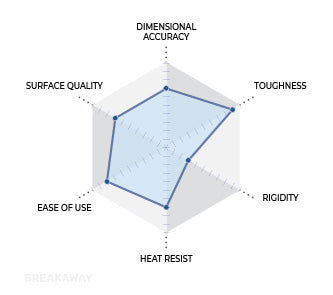
- Pros
- Easy to print
- Usable with most materials
- Easy support removal
- Cons
- Requires dual extrusion printer
- Manual support removal
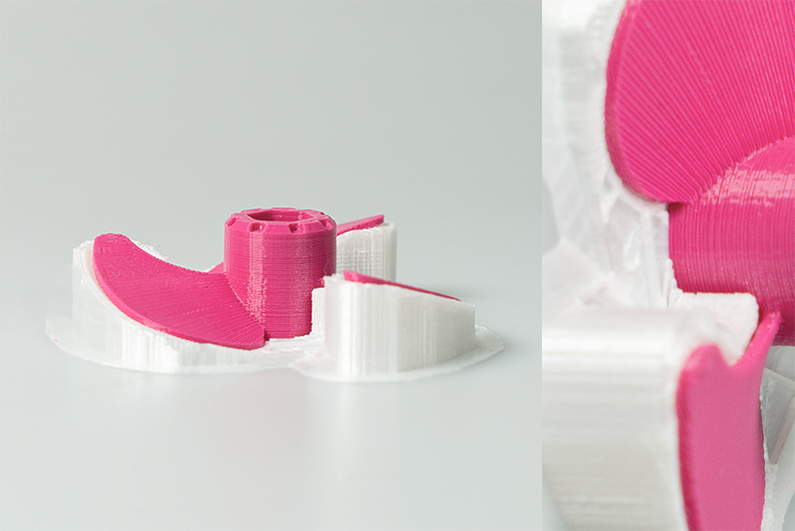
Engineering
Soluable support
Tough
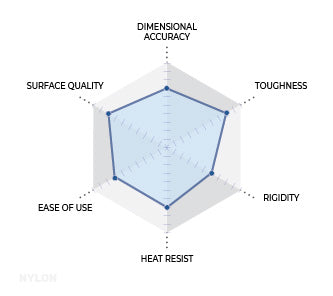
- Pros
- Extremely robust prints
- flexible prints
- Excellent impact and abrasion resistance
- Low friction coefficient
- good corrosion resistance to alkalis and organic chemical
- Cons
- Dima fix or PVA interface for initial layer adhesion
- enclosure recommended
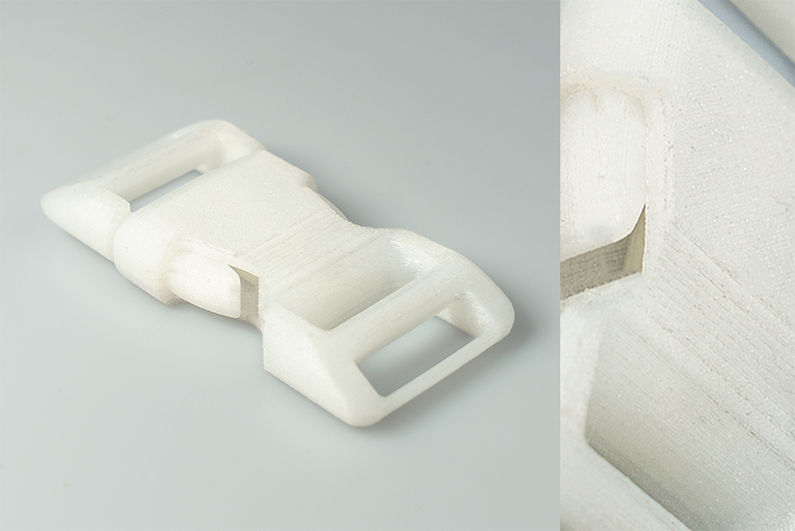
Industrial
Composit material
Soluable support
Abrasive
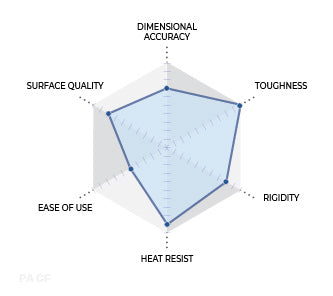
- Pros
- Beautiful textured matt surface finish
- stiff and robust prints
- good dimensional stabillity
- Cons
- Slow print speed
- Wears out brass nozzles quickly
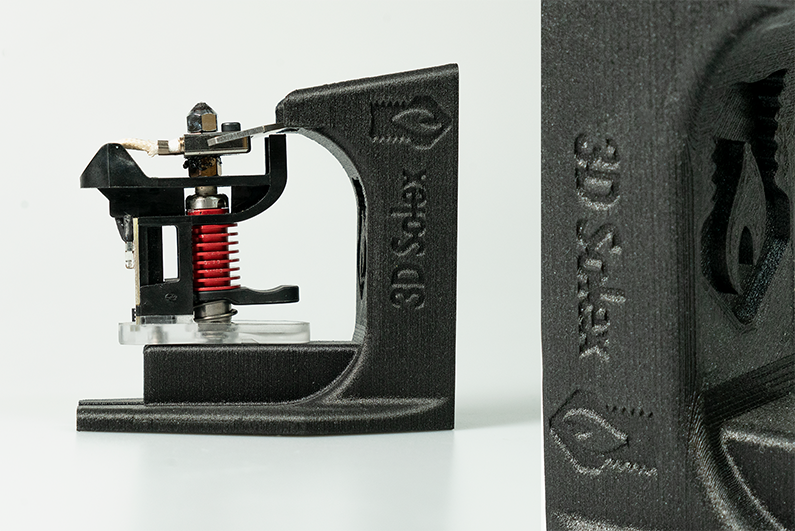
General
Prototype
Engineering
Economy
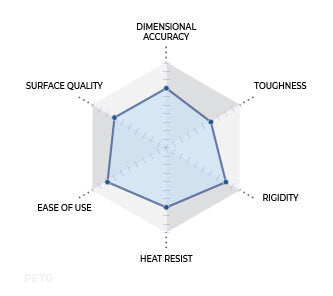
- Pros
- Very robust material
- excellent layer adhesion
- Heat transition ~80ºC
- Excellent chemical resistances
- Cons
- Minimal shrinking
- Stringing
- Requires Dima Fix
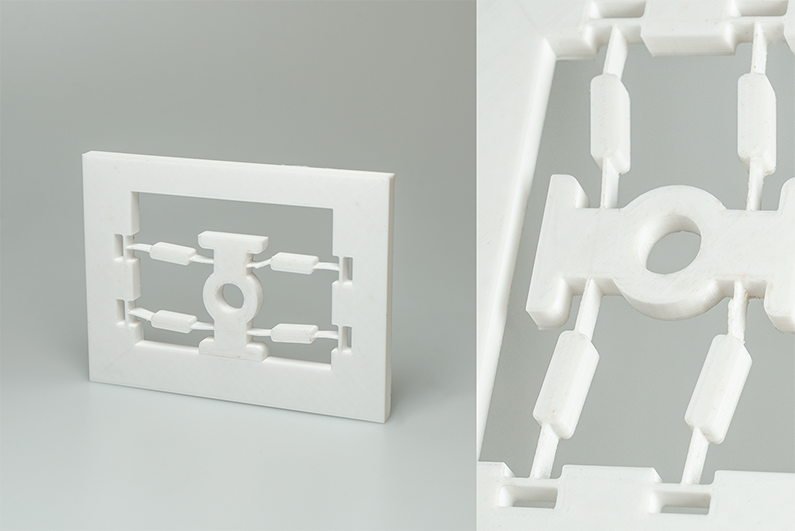
Essential
General
Prototype
Economy
Aesthetic
Colors
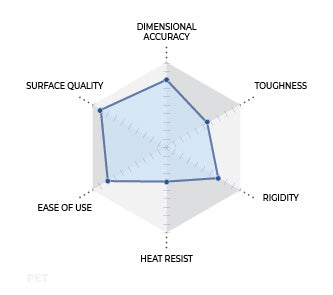
- Pros
- Easy to Print
- Excellent layer adhesion
- Does not absorb moisture Good chemical resistances
- Good aurface finish
- Cons
- Stringing
- Recommend using breakaway supports
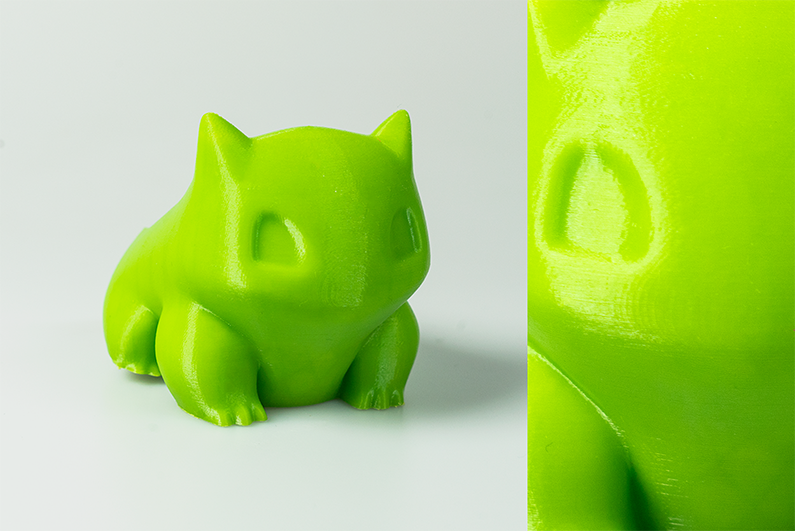
Industrial
Engineering
Stiff
surface finish
Composit material
Abrasive
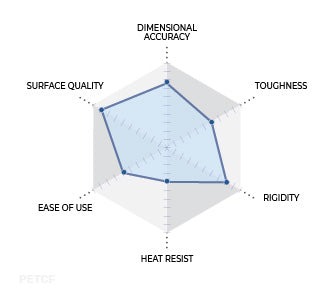
- Pros
- Very robust
- Beautiful and unique surface finish
- high impact resistance
- heat resistance 100ºC
- Good dimensional stability
- Cons
- Moderate wear against brass components
- Slow print speed
- Require Dima Fix
- Minimum nozzle size 0.6mm
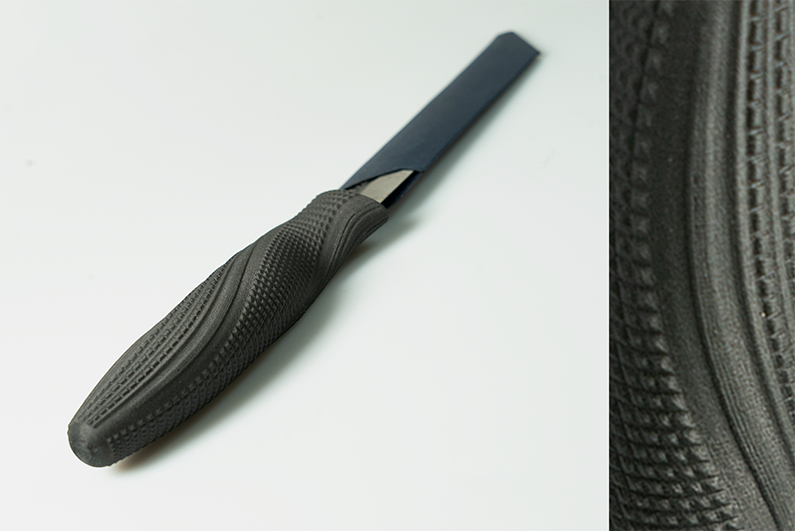
General
Prototype
Engineering
Colors
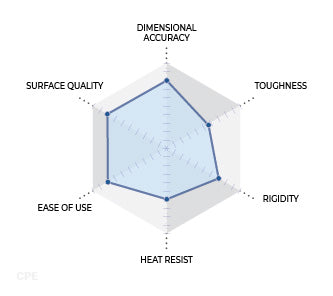
- Pros
- Easy to print
- Excellent layer adhesion
- Good chemical resistances
- Good surface quality
- Cons
- Some stringing
- Low shrinking/warping
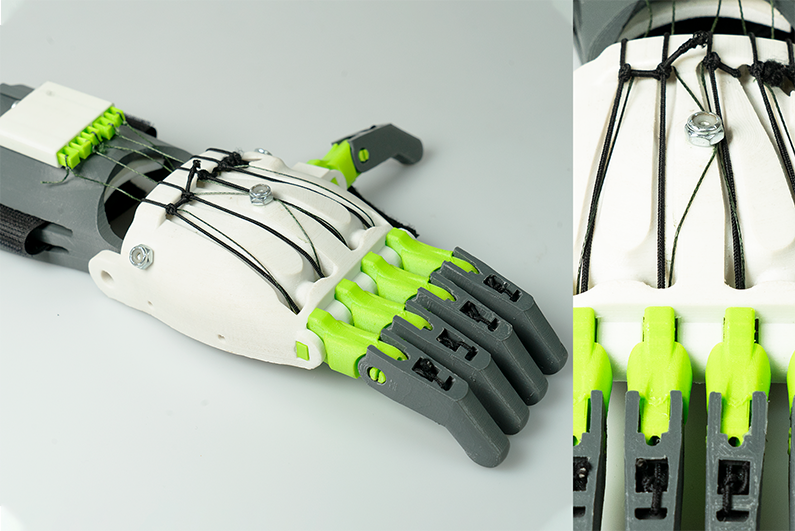
Engineering
High temp
Prototype
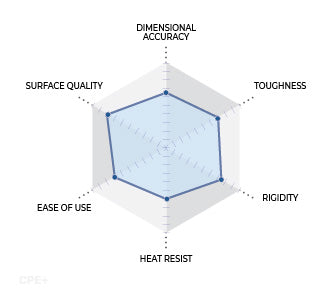
- Pros
- Heat resistance up to 100ºC
- High impact resistance
- resistant to water absorption
- Good Dimensional accuracy
- excellent interlayer adhesion
- Cons
- Enclosure recommended
- dima fix recommended
- slower then average printspeed
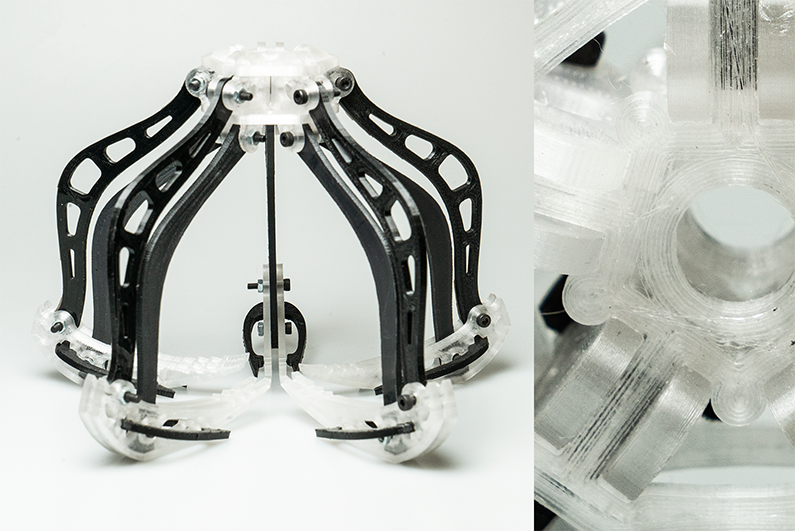
Engineering
Prototype
Tough
High temp
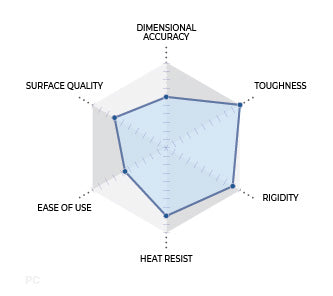
- Pros
- 110ºC Heat resistance
- some Fire retardant characteristics
- Dimensionally stable
- Interlayer adhesion
- Very robust material
- Cons
- Not suitable for food contact
- Highly recommend enclosure
- Recommend dima fix
- slower then average print speeds
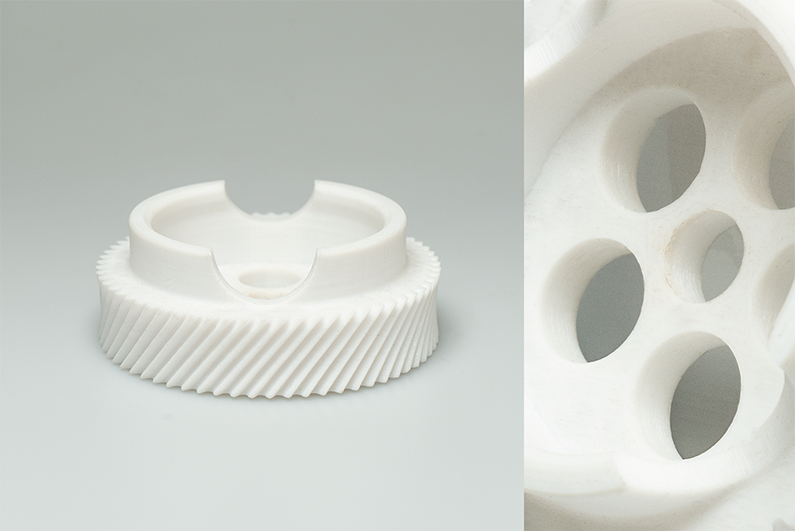
Prototype
Unique
Flexible
Wear resist
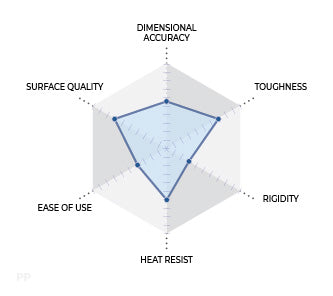
- Pros
- Flexible prints
- Chemically innert
- excellent impact resistance
- Cons
- difficult to print
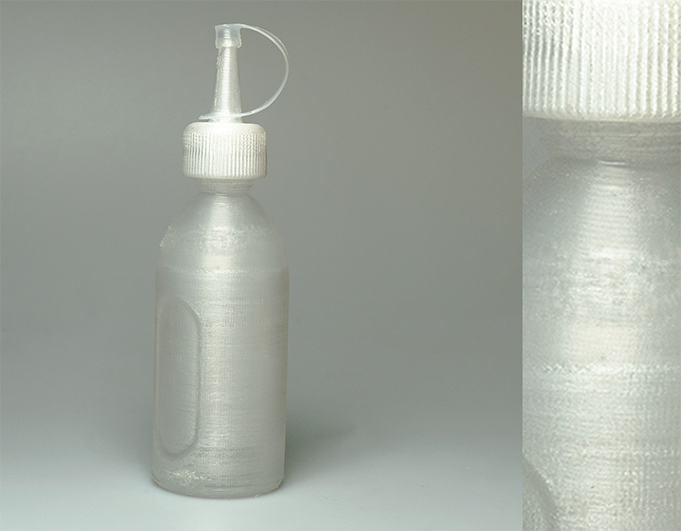
Industrial
Aesthetic
Abrasive
Composit material
Tough
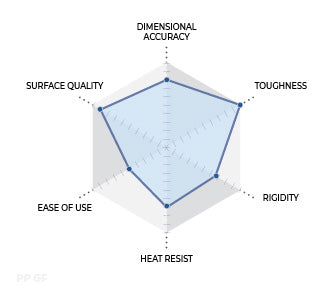
- Pros
- Fantastic surface finish
- Low warping
- Ultimaker profile ready
- High impact resistance than other CF materials
- Cons
- Requires special adhesion glue or sheets
- Requires Ruby/steel nozzle
- Incompatible with most supports
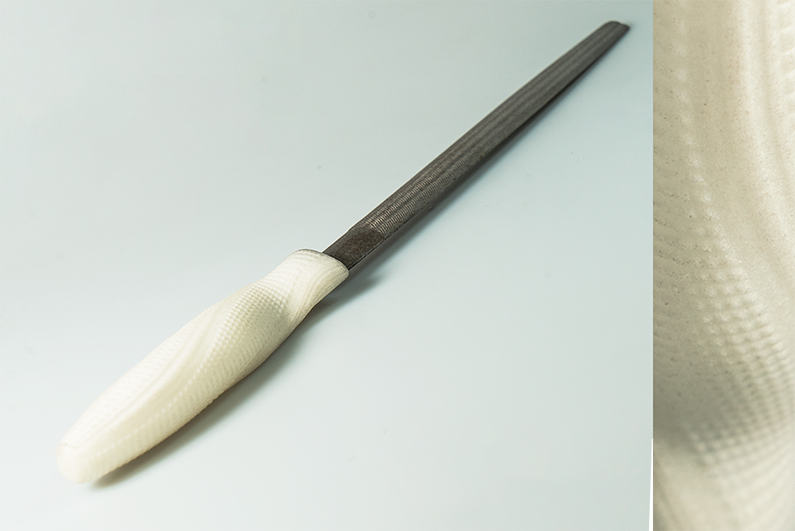
Engineering
Post processing
Colors
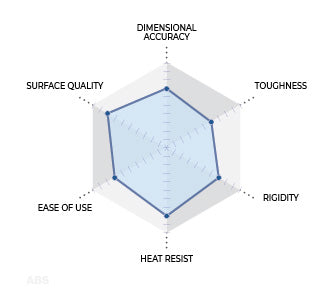
- Pros
- robust material
- UV resistant
- Good heat resistance
- inexpensive engineering material
- Cons
- Some Shrinking and warping
- poor layer adhesion
- enclosure recommended
- Strong Odur during print
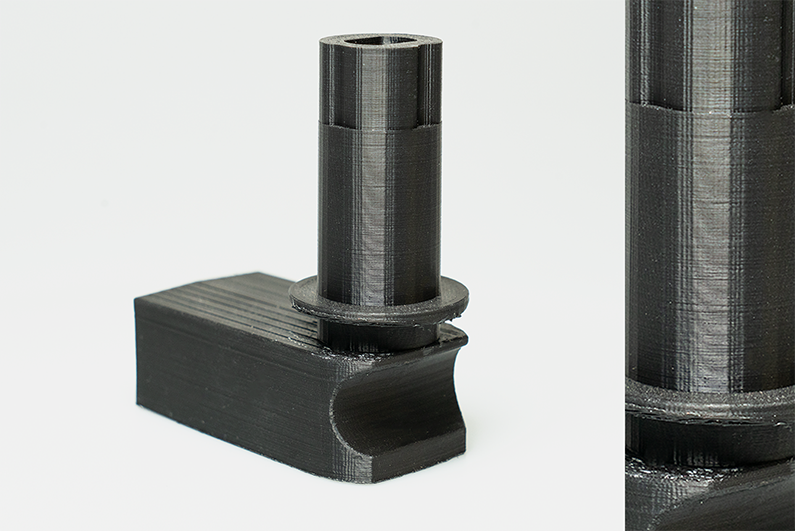
Aesthetic
Surface quality
Support material
Matte
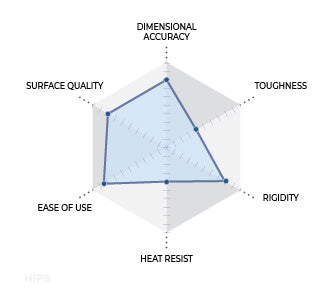
- Pros
- Good Dimensional accuracy
- Easy to print
- Good impact resistance
- Can be sanded for smoother surface
- Cons
- Some shrinking/warping
- Poor chemical resistances
- Recommended to use an enclosure
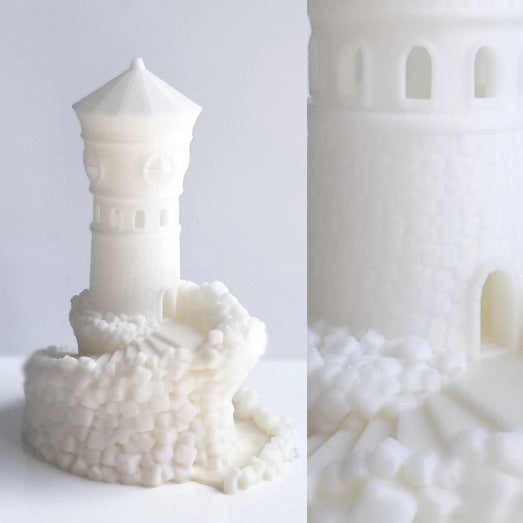
Engineering
Flexible
Wear resist
Easy
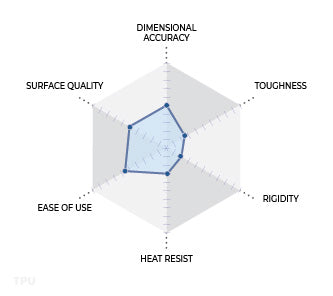
- Pros
- Wear resistant
- Rubber like properties
- Impact Resistance
- Resistance to common industrial oils and chemicals
- Cons
- Very difficult to print
- Very slow print speed
- rough surface finish
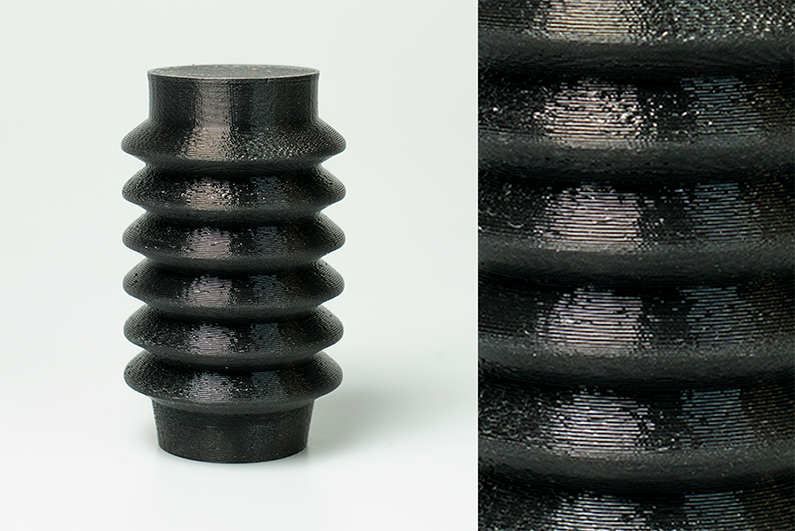
Prototype
Flexible
Unique
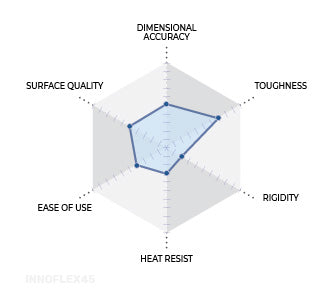
- Pros
- Rubber like properties
- Bio-based Thermoplastic
- Good layer adhesion
- Good wear resistance
- Cons
- Very slow printing speed
- Poor dimensional accuracy
- Rough surface quality
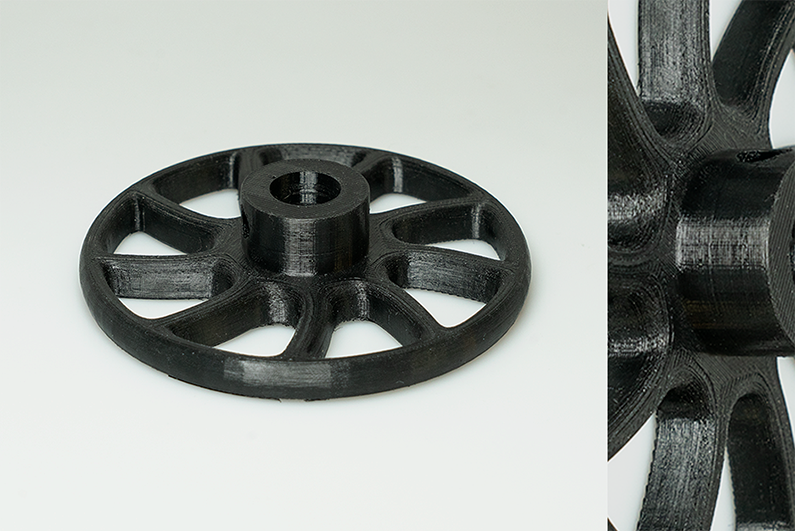
Prototype
UV resist
matte
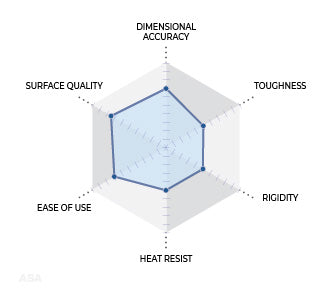
- Pros
- weathering resistant
- chemical resistant
- heat resistant
- Good anti-static properties
- rigid
- Cons
- Some shrinking and warping
- recommend dima fix initial layer adhesion
- no colour choices

Dupont
Industrial
Flexible
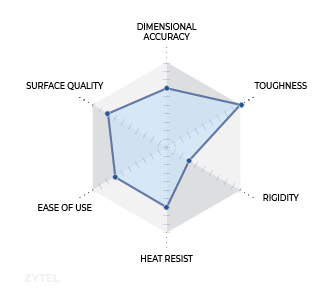
- Pros
- Industrial grade material
- Robust material
- Heat resistance up to 110ºC
- Cons
- Recommend enclosure
- absorbs moisture out of air
